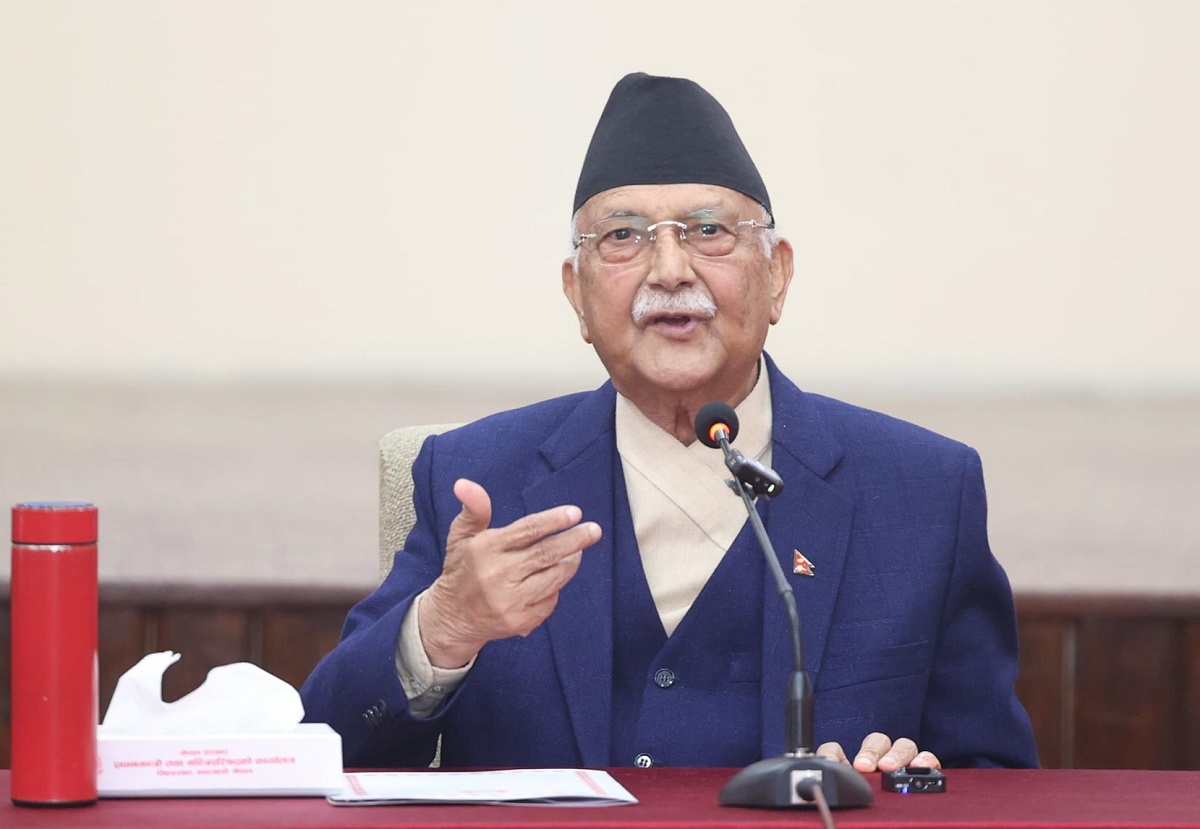KATHMANDU: Prime Minister KP Sharma Oli has announced that the Sagarmatha Sambaad, hosted by Nepal, will focus on global and regional issues of significance.
He emphasized that the dialogue aligns with Nepal’s policy to promote international understanding and cooperation through discussion, consensus, and collaboration.
Speaking at the announcement ceremony, the prime minister revealed that the first edition of the Sagarmatha Sambaad is scheduled for May 2025, with the theme ‘Climate Change, Mountains, and the Future of Humanity.’
He added that the initiative supports the UN’s designation of 2025 as the International Year of Glacial Preservation, aimed at raising awareness about the rapid melting of glaciers and the importance of preserving Himalayan ecosystems.
Oli criticized industrialized nations for prioritizing prosperity at the expense of nature, exacerbating climate change.
Highlighting the severe impacts of climate-induced disasters on lives and development, he reiterated the importance of dialogue in finding solutions to contemporary challenges.
He recalled Nepal’s achievements in strengthening democracy and pledged to focus on socio-economic transformation, aligning with the national aspiration of ‘Prosperous Nepal, Happy Nepali.’
He also stressed that climate change disproportionately impacts high-altitude and coastal regions, noting that Himalayan temperatures are rising faster than the global average.
Oli described the Himalayas as a “third pole” due to their critical role in stabilizing the planet’s climate and maintaining ocean health.
However, he lamented the visible consequences of climate change, such as melting snow and frequent extreme weather events, which have turned once-white peaks into black rock.
While Nepal’s carbon emissions remain minimal, the country faces significant challenges from climate change.
Oli reiterated Nepal’s commitment to achieving net-zero emissions by 2045, promoting clean energy, expanding forest cover, and protecting biodiversity. However, he underscored the limitations of Nepal’s efforts alone and called on historically responsible nations to act with urgency and accountability.









Comment